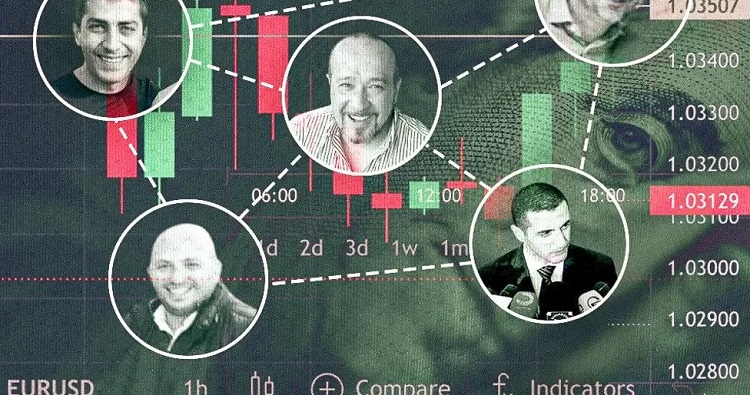BBC reveals fraudulent “call centre” scheme involving former Georgian Defence Minister Kezerashvili

The network is known to police as the Milton group, a name originally used by the scammers themselves but abandoned in 2020. The BBC identified 152 brands, including the Georgian-based Solo Capitals, that appear to be part of the network. Photo: BBC
The British public broadcaster BBC on Wednesday revealed its investigation into a fraudulent “call centre” scheme involving David Kezerashvili, a wanted former Defence Minister of Georgia in the United National Movement Government, in a report that detailed a global network of a scam operation targeting customers.
In BBC Eye, its documentary investigative series, the broadcaster said it had spent over a year looking into a global fraudulent trading network of hundreds of investment brands scamming targets. The investigation revealed for the first time the scale of the fraud, as well as the identities of individuals who appear to be behind it.
The network is known to police as the Milton group, a name originally used by the scammers themselves but abandoned in 2020. The BBC identified 152 brands, including the Georgian-based Solo Capitals, that appear to be part of the network.
There were no publicly available documents linking Kezerashvili to this pre-Milton network, but when we looked at the Panama Papers, his name came up again and again, identifying him as either the founder of the parent companies in the network or as one of their initial shareholders. Behind the scenes, Kezerashvili appeared to be at the centre of that network”, BBC said in reference to the globally significant release of 11.5 million documents leaked in 2016.
“[S]everal former employees of Milton-linked companies told us confidentially that they had had direct dealings with Kezerashvili and knew him to be involved in the Milton group”, the story noted.
The BBC said it was also able to find a number of other pieces of evidence linking the former defence minister to Milton brands. Several companies owned by Kezerashvili used a private email server, on which the only other users were Milton group companies. His venture capital firm, Infinity VC, owned the branding and web domains for companies that provided trading platform technology to the scammers.
The broadcaster explained operators of the scheme contacted their targets and offered opportunities for making profit, or sometimes offering them help in recovering funds they had already lost in previous scams. A majority of their victims signed up after being shown ads on social media.
Kezerashvili told the BBC via his lawyers that he strongly denied any involvement with the Milton group, or that he gained financially from scams.
The practices of the fraudulent operation include instructing their targets to download software, which is then used to remotely control their computers and place trades using them, with their “trading account” with the scheme described as a “simulation” set up to create an illusion of trading activity for profit.
The uncovering of the scheme follows the BBC’s accompanying of Georgian and German law enforcement in their raids on offices of the fraudulent operation in Tbilisi in November, which came after Georgian police made arrests in October and Finance Minister Lasha Khutsishvili said in April 46 call centres operations were under investigation across the country.
Details of the Milton Group operation were reported as early as March 2020 by Swedish newspaper Dagens Nyheter, which detailed a scheme of English-speaking “telemarketers” who were convincing victims from over 50 countries to put their money in fake investments.
 Tweet
Tweet  Share
Share